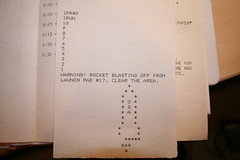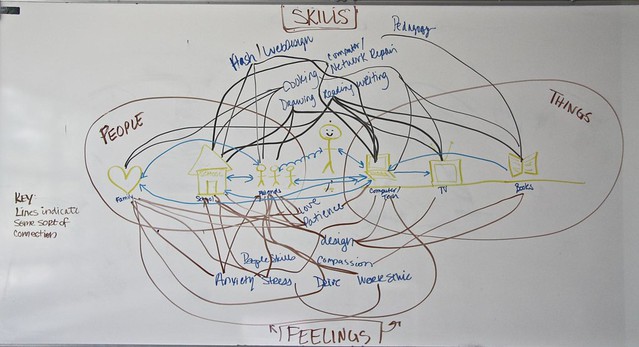So, I had quite a few “moments” today –
We had our first TeachMeet this morning – 45 awesome people from around the world sharing tips, tricks and tools for making each other better educators.

That was pretty awesome….then at the end of the day the Year 1 students in Rouen skyped with the Year 1 East Lansing group. The Rouen group was giving feedback to the East Lansing group on their Content Connections Websites and Inquiry-based Student Projects. Cross collaboration between programs is something we’ve been trying to integrate over the past several years, but we haven’t quite been able to get it right. This afternoon (for us in Rouen, morning for East Lansing) I think we got it right. It was so energizing to bop between the skype conversations going on and the students interacting with each other…truly an ed tech moment for me. BIG thanks to Michelle, Sara, Jodi and Alison for making this happen.
After a long week, most of the students made it out to Bar des Fleurs to enjoy a beverage and the company of their peers and professors in a relaxed atmosphere – it was a beautiful evening. As I wandered home I was searching for a quick take-out dinner. I wandered past a Lebanese restaurant not far from my apartment. I entered and ordered fattoush and falafel. The owner quickly realized I was not French and asked where I was from – I said Michigan and he (Mo) nearly leaped over the counter to give me a hug. He called out his wife (Abba) and she generously greeted me with smiles and a hug. They lived in Dearborn for ten years and his brother owns “Crazy Pizza” on Telegraph. The size of this world and the connections between all of us never ceases to amaze me. We spent a long time talking about Dearborn and I told them of my love for Lebanese food. They asked me to come back again before I leave and promised to prepare an extra special dinner for me because I was like family. I will not hesitate to take them up on the offer!






